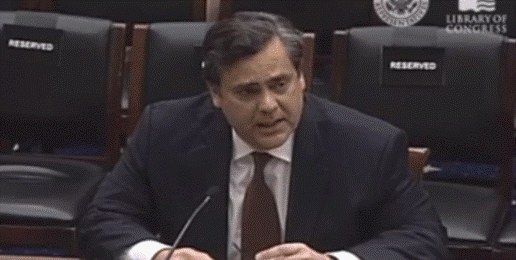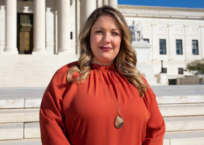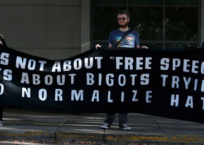
Recently, “progressive” George Washington University Law Professor Jonathan Turley testified before the House Judiciary Committee on the dangerous expansion of Executive Branch power under the Obama Administration. This would be an excellent resource for high school students to study, both those in public schools and home schools.
Here is an excerpt from his prepared remarks:
I recently testified before this Committee on the history and function of the separation of powers in our system.1 I also discussed how, in my view, President Obama has repeatedly violated this doctrine in the circumvention of Congress in areas ranging from health care to immigration law to environmental law. I will not repeat that discussion here because this hearing is not about the existence of such violations but the possible corrective measures that can be taken in light of those violations.
Given the issues at stake in this debate, it is vital that we speak plainly about the current conflicts between the Executive Branch and the Legislative Branch. We are in the midst of a constitutional crisis with sweeping implications for our system of government. There has been a massive gravitational shift of authority to the Executive Branch that threatens the stability and functionality of our tripartite system. To be sure, this shift did not begin with President Obama. However, it has accelerated at an alarming rate under this Administration. These changes are occurring in a political environment with seemingly little oxygen for dialogue, let alone compromise. Indeed, the current anaerobic conditions are breaking down the muscle of the constitutional system that protects us all. Of even greater concern is the fact that the other two branches appear passive, if not inert, as the Executive Branch has assumed such power.
As someone who voted for President Obama and agrees with many of his policies, it is often hard to separate the ends from the means of presidential action. Indeed, despite decades of thinking and writing about the separation of powers, I have had momentary lapses where I privately rejoiced in seeing actions on goals that I share, even though they were done in the circumvention of Congress. For example, when President Obama unilaterally acted on greenhouse gas pollutants, I was initially relieved. I agree entirely with the priority that he has given this issue. However, it takes an act of willful blindness to ignore that the greenhouse regulations were implemented only after Congress rejected such measures and that a new sweeping regulatory scheme is now being promulgated solely upon the authority of the President. We are often so committed to a course of action that we conveniently dismiss the means as a minor issue in light of the goals of the Administration. Many have embraced the notion that all is fair in love and politics. However, as I have said too many times before Congress, in our system it is often more important how we do something than what we do. Priorities and policies (and presidents) change. What cannot change is the system upon which we all depend for our rights and representation.
Convenience has long been the enemy of principle in politics. It is not enough to refer to the value of a program to justify its extraconstitutional means. Such constitutional relativism cuts the entire system free of its moorings; leaving the system adrift in a sea of politics where the ability to act is treated as synonymous with the authority to act. There is no license in our system to act, as President Obama has promised, “with or without Congress”3 in these areas. During periods of political division, compromise is clearly often hard to come by. That reflects a divided country as a whole. Such opposition cannot be the justification for circumvention of the legislative branch….
The current crisis is the result not simply of executive overreach but also of judicial avoidance in the face of that growing encroachment. The courts are now absent—without constitutional leave—in the midst of one of the most fundamental conflicts in the history of our country. That will make corrective measures all the more important (and all the more difficult) for Congress.
…
The classic check on executive over-reaching is the power of the purse. While the President may control the machinery of the state, it is Congress that supplies the gas needed to run those machines. However, the idea of the purse strings as a meaningful check on executive power is often presented in highly generalized and unrealistic terms. Congress is unlikely to cause a cascading failure by cutting off all of the funding for an agency or even a subagency office. More importantly, the Executive Branch routinely moves billions of dollars around in discretionary or undesignated funding. Cutting off the funding of a given part of the government does not have immediate impacts and may in fact not prevent funding as intended.
The Obama Administration has shown how the power of the purse has diminished under modern fiscal systems.
…
To be clear, I do not view President Obama as a dictator, but I do view him as a danger in his aggregation of executive power. It is not his motives but his means that I question. It is the danger described by Louis Brandeis in his dissent in Olmstead v. United States,37 where he warned that the “greatest dangers to liberty lurk in insidious encroachment by men of zeal, well meaning but without understanding.”
…
We are now at the constitutional tipping point for our system. If balance is to be reestablished, it must begin before this President leaves office and that will likely require every possible means to reassert legislative authority.
Click HERE to support the work and ministry
of Illinois Family Institute.

























